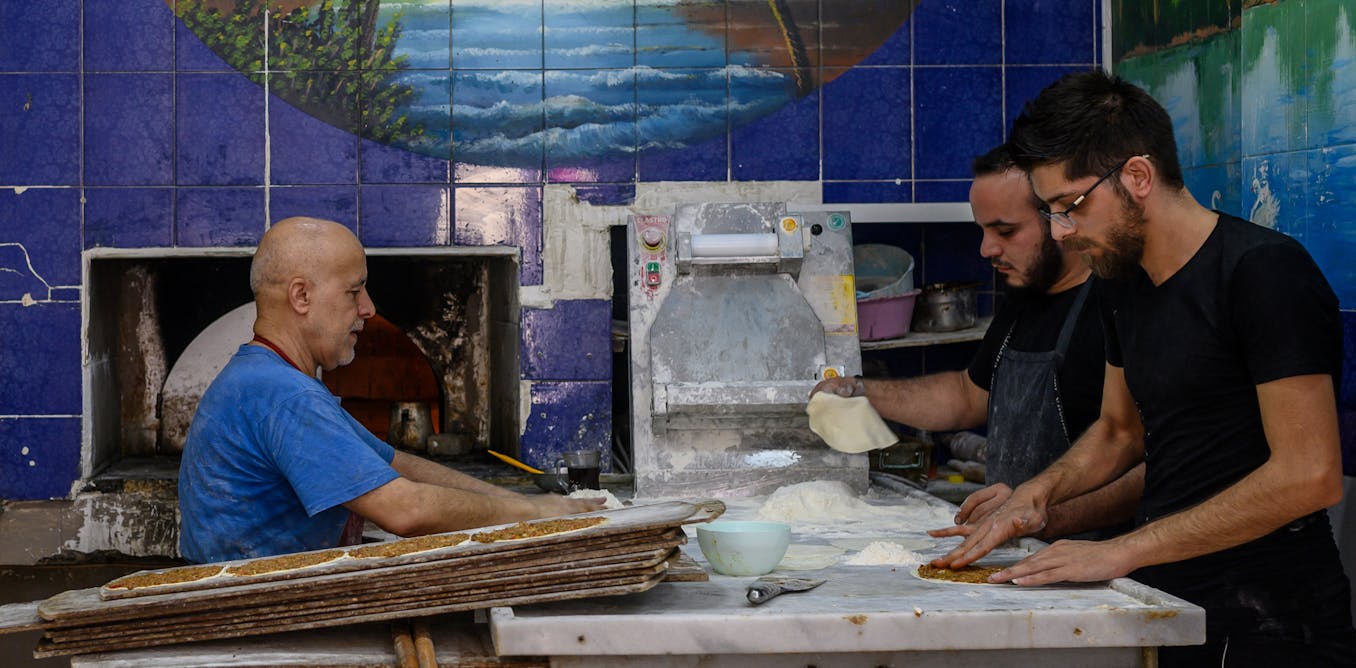Science
Syrian Entrepreneurs Thrive in Turkey Despite Significant Challenges

As of the end of 2024, approximately 42.7 million people globally have been forcibly displaced due to persecution, conflict, and violence, according to the UN Refugee Agency. Among these displaced individuals, many have sought refuge in Turkey, where over 14,000 formal businesses owned or co-owned by Syrian forced migrants have been established since the onset of the Syrian conflict in 2011. Despite facing numerous challenges, these entrepreneurs are not only rebuilding their lives but also contributing significantly to the Turkish economy.
Entrepreneurship as a Necessity
Many Syrian forced migrants resort to entrepreneurship out of necessity, often barred from regular employment due to unrecognized credentials or discrimination. In this context, the transformation from survival to success hinges on several factors beyond mere business acumen or financial capital. A recent study involving 170 Syrian forced migrant entrepreneurs reveals that their connection to the host society plays a crucial role in their business performance.
For those who develop a strong sense of belonging and identity within Turkey, there is a noticeable increase in adaptability to local markets. This connection often leads to superior financial outcomes and stronger customer relations. The study indicated that entrepreneurs who felt integrated into the local community were more likely to tailor their services to meet the needs of Turkish customers.
The Impact of Language and Discrimination
Language proficiency was identified as a significant factor in fostering this host country identity. Entrepreneurs who felt confident in their ability to communicate in Turkish were more likely to engage effectively with local customers and markets. Conversely, experiences of discrimination, whether from customers or officials, undermined their sense of belonging and hampered business success.
“Social exclusion can be subtle, with customers avoiding shops or landlords denying lease agreements,” the researchers noted, highlighting the insidious nature of discrimination.
This adverse treatment can create a cycle of exclusion, making it increasingly difficult for forced migrants to thrive in their new environment. The study emphasizes that timely legal protection is also critical in addressing these challenges.
Legal Protection and Its Timing
In Turkey, Syrian forced migrants are granted “temporary protection” status, which significantly impacts their ability to access capital and establish formal businesses. However, the timing of this legal recognition varies widely. Research indicates that individuals who receive this protection promptly after arrival tend to face fewer discriminatory attitudes, facilitating a smoother integration process.
In contrast, those who experience delays in obtaining this status often suffer from heightened discrimination, which can damage their sense of belonging. Even if they eventually secure legal status, the initial negative experiences can leave a lasting impact.
The Wider Community Impact
The success of forced migrant entrepreneurs is not just beneficial for them; it has broader implications for local economies. When these individuals succeed, they create jobs, contribute to tax revenues, and introduce new ideas into the marketplace. Their integration into the social and economic fabric of the community enhances overall growth.
Addressing the barriers faced by forced migrant entrepreneurs is crucial. Public policies must focus on ensuring timely legal protection, providing language training, and combating discrimination through education. Initiatives like the Fast Track programme in Sweden have shown promise in these areas, with reports indicating that such efforts led to increased motivation among participants and the establishment of 83 new businesses.
As forced migration becomes an increasingly pressing global issue, it is essential for countries to move beyond short-term aid. Supporting forced migrant entrepreneurs is a pathway not only to individual success but also to community development and economic growth. Recognizing these individuals as vital contributors rather than challenges to be resolved will foster more inclusive societies.
Ultimately, the journey towards integration involves addressing the structural barriers that hinder forced migrants from fully participating in their new communities. By investing in their potential, societies can benefit from the rich contributions these entrepreneurs bring to the table.
-

 Top Stories2 months ago
Top Stories2 months agoTributes Surge for 9-Year-Old Leon Briody After Cancer Battle
-

 Entertainment3 months ago
Entertainment3 months agoAimee Osbourne Joins Family for Emotional Tribute to Ozzy
-

 Politics3 months ago
Politics3 months agoDanny Healy-Rae Considers Complaint After Altercation with Garda
-

 Top Stories3 months ago
Top Stories3 months agoIreland Enjoys Summer Heat as Hurricane Erin Approaches Atlantic
-

 World4 months ago
World4 months agoHawaii Commemorates 80 Years Since Hiroshima Bombing with Ceremony
-

 Top Stories2 months ago
Top Stories2 months agoNewcastle West Woman Patricia Foley Found Safe After Urgent Search
-

 Top Stories4 months ago
Top Stories4 months agoFianna Fáil TDs Urgently Consider Maire Geoghegan-Quinn for Presidency
-

 World4 months ago
World4 months agoCouple Convicted of Murdering Two-Year-Old Grandson in Wales
-

 World4 months ago
World4 months agoGaza Aid Distribution Tragedy: 20 Killed Amid Ongoing Violence
-

 World4 months ago
World4 months agoAristocrat Constance Marten and Partner Convicted of Infant Murder
-

 Top Stories3 months ago
Top Stories3 months agoClimbing Errigal: A Must-Do Summer Adventure in Donegal
-

 Top Stories3 months ago
Top Stories3 months agoHike Donegal’s Errigal Mountain NOW for Unforgettable Summer Views









